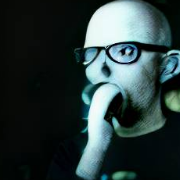- Search posts by...
- Reply to this topic
- Ignore this topic
- Stop ignoring this topic
- Start new topic
-
Recently Browsing 1 Member
-
Similar Content
-
- 2 replies
- 1,326 views
-
- 1 reply
- 1,455 views
-
- 1,348 replies
- 198,141 views
-
- 2 replies
- 1,043 views
-
- 0 replies
- 667 views
-









Recommended Posts